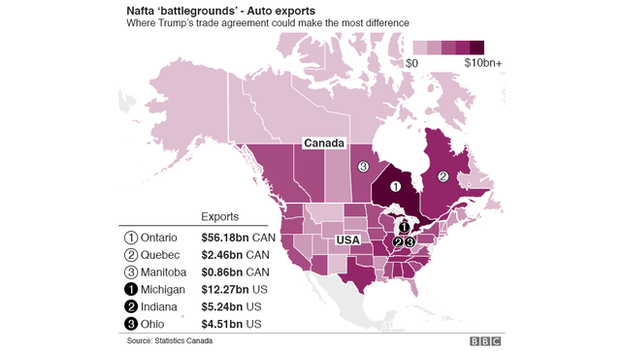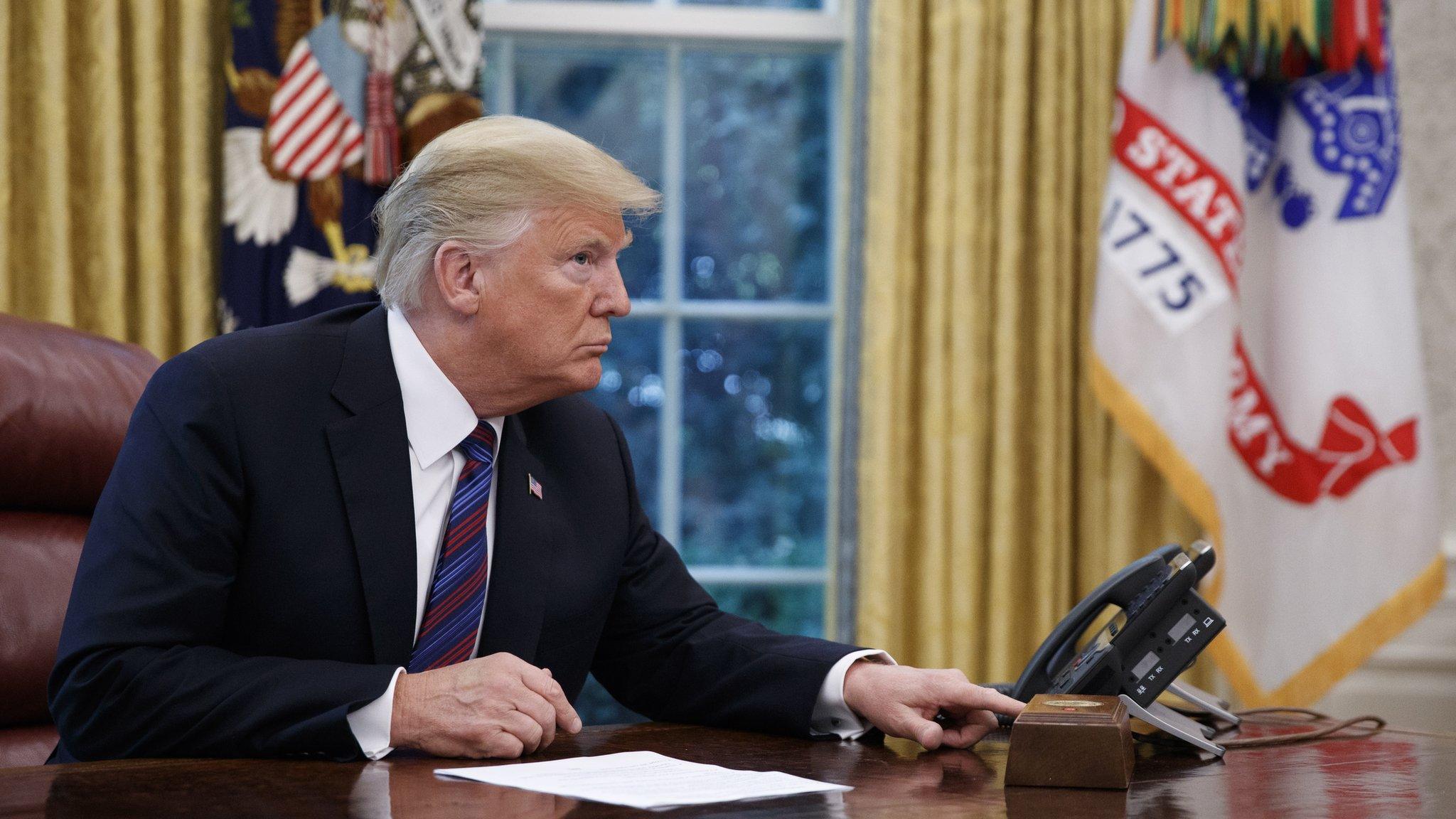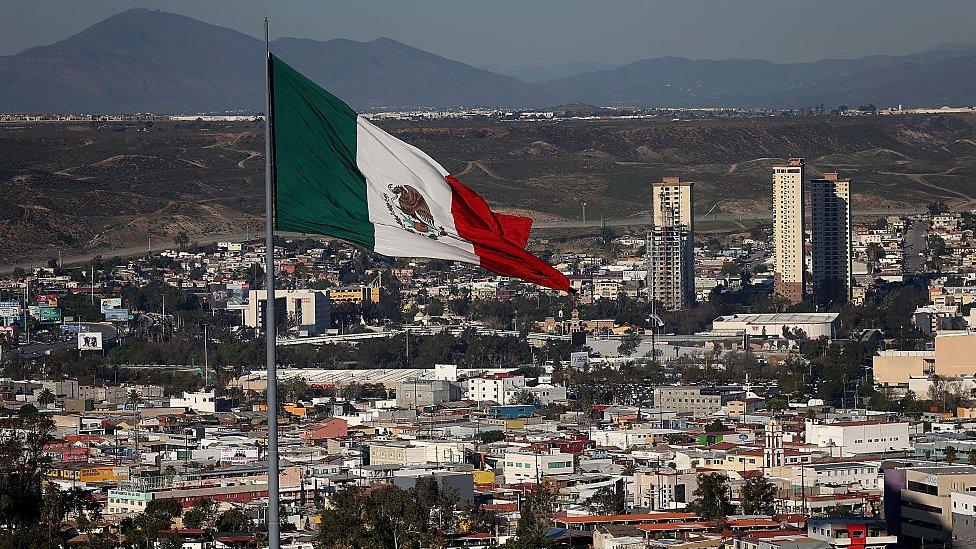Nafta: Clock is ticking for Canada in US trade negotiations
- Published

The clock is ticking for Canada to come to a trade agreement with the US after Donald Trump gave an ultimatum - sign an agreement by Friday, or else.
Canada's foreign minister has flown to the US to discuss the North American Free Trade Agreement (Nafta), a landmark pact dating back to 1994.
Her visit comes a day after the US and Mexico agreed to a new Nafta deal.
Canada, the third member of Nafta, has yet to say whether it will join the revised free trade agreement.
On Wednesday, Prime Minister Justin Trudeau said striking a deal by Friday was possible, but added: "It is only a possibility, because it will hinge on whether or not there is ultimately a good deal for Canada."
In Washington, Foreign Minister Chrystia Freeland struck a cautiously positive tone.
She said Canada supported wage rules agreed by the US and Mexico that would require car workers to be paid at least $16 an hour.
The US and Canada reached a "high level agreement" about the matter in the spring, Ms Freeland said: "On that basis, we are optimistic about having some very productive conversations this week."
Mr Trump has threatened to tax Canada's automotive sector or cut it out entirely if a deal is not reached soon.
But a deal without Canada could be harder than he thinks, experts say.
Lawrence Herman, a senior fellow at the CD Howe Institute in Toronto who has extensive experience in US-Canada trade relations, says Canada has been "badly treated" by this divide-and-conquer approach.
"Canada has been isolated," he says. "It is outrageous that the United States and Mexico would negotiate some kind of arrangement behind closed doors."
Prime Minister Justin Trudeau said "he is determined to reach a fair agreement for all concerned" as long as the deal is "good for Canada and good for middle-class Canadians".
If Canada does not come to an agreement by Friday, Mr Trump said he will levy additional tariffs on its auto exports.
Donald Trump speaks with Mexico's president by phone through an interpreter
"It will either be a tariff on cars, or it will be a negotiated deal," the US president said. "And, frankly, a tariff on cars is a much easier way to go, but perhaps the other would be much better for Canada."
Vehicle exports to the US are worth $56bn (C$72bn; £43bn), or 20% of Canada's total exports to the US - its largest export market.
The costs for the US would also be high, as America's auto sector uses parts that are manufactured in Canada.
"I think the question the Canadian negotiators are trying to calculate is whether or not this is a serious threat or a bluff," says Edward Alden, a senior fellow on trade at the Council of Foreign Relations in Washington, DC.

If auto tariffs do not work, Mr Trump has said he would be happy to "terminate" Nafta entirely and instead sign bilateral agreements with Mexico and Canada separately.
But getting his way would not be that simple, Mr Herman says.
Mr Trump would have to give Congress 90 days notice of his intention to terminate Nafta. Congress would then have an additional 90 days to review any new agreements replacing Nafta.
Meanwhile, the US would be open to litigation from all sides, says Mr Herman.
"I think it will be extremely difficult," he adds. "The Congress, and only the Congress, can agree to the termination of Nafta by the United States."
Tensions between Canada and the US have been simmering since the G7 summit in June, when Mr Trump called Mr Trudeau "very dishonest and weak".
If Nafta trade deal was a hamburger...
The looming deadline was precipitated by a political changing of the guard in Mexico, and mid-term elections in the US.
Negotiators want to sign a deal with Mexico before outgoing President Enrique Pena Nieto leaves office at the end of November.
In order to meet that deadline, the Trump administration must present Congress with a deal at least 90 days in advance - which means the deadline is the end of August.
It would also be a big win for Mr Trump if he could have a deal ready to go before Americans head to the polls.
"I think what Trump is hoping for is a vindication of his approach, which is by taking a very hard line and in effect holding a gun to the head of American trading partners, he can force them to make concessions," Mr Alden said.
"We're going to get a test of that over the next several days."
- Published28 August 2018

- Published16 August 2017
